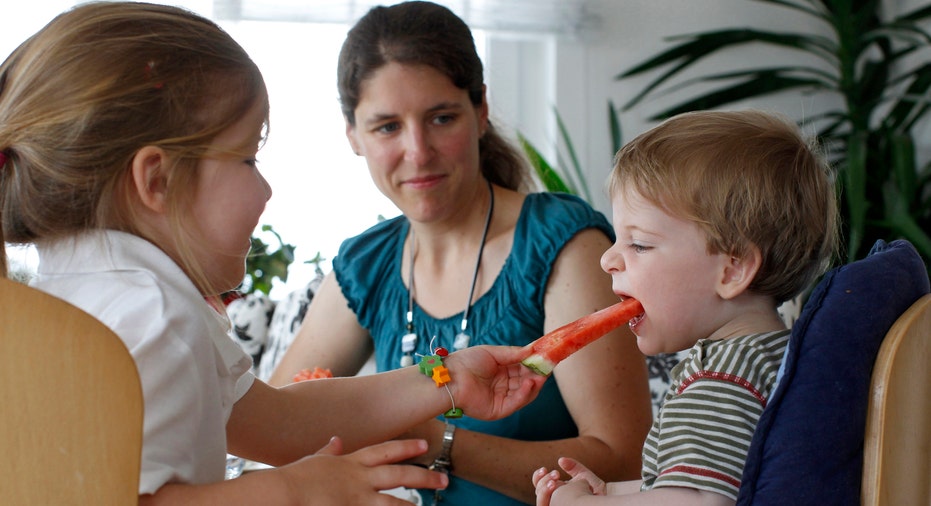Raising Baby: How to Reduce Child-Rearing Costs

The cost of raising a child has been on a steady rise over the last decade, and the trend shows no sign of slowing down.
According to BabyCenter’s 2013 Cost of Raising a Child report, parents spend an average of $13,000 per year on their kids, an increase from last year.
“Some of the biggest costs that has gone up across the country is child care,” says BabyCenter financial expert Carmen Wong Ulrich. “But it’s not the main driver. Diapers and all those other basic costs seem to put most of the financial pressure on the parents.”
Whether it’s the rising cost of health care or the higher price tags associated with baby products, parents are feeling the pinch of raising children and are seeking out ways to reduce the price tag.
According to BabyCenter’s report, 10% of moms said they lived with their parents to save money to start a family and close to 30 said they got financial help from their parents or in-laws during their baby’s first year. Even more telling: 66% of moms said they spend too much on their kids, up 22% from a year ago.
Experts say there are many ways for parents to save money, but stress that no one formula will fit every family’s needs and budget.
“Most parents stress so much about giving their child everything they think they want/need to be happy,” says Linda DiProperzio, a parenting writer and mom of two. “We go overboard with signing them up for activities, buying them toys, etc. but the reality is all they really want--especially when they’re young--is to be with mom and dad and have fun as a family. You don’t need to spend a fortune to do that.”
She recommends parents, especially first-timers, consider buying big-ticket items like strollers and baby furniture second hand. She points to websites like eBay and Craigslist as well as shopping garage sales as good starting points to find deals. Parents can even search online for local swap groups in their area where parents sell or swap unwanted baby items.
“Parents should also bargain shop and price around as much as they can,” she says. “I’ve seen parents swap coupons for formula, baby food, specific stores, so don’t be shy about asking around. And sign up in stores and on brand websites—they will often send you coupons or free samples.”
One of the biggest costs parents will face is the expense associated with housing and transportation, and to help reduce the budget strain, Ulrich says parents need to learn to cut back whether it’s living with the in-laws for a set time period or using public transportation.
She also says new parents tend to overlook saving, and stresses that couples start saving and reducing their costs before the baby arrives. “Parents don’t take into account saving money. Moms need to assume they may have to stay home longer [than their employer will pay] and make sure they have some savings.”
Hand in hand with saving is making sure parents are not short changing their retirement or emergency fund because they are spending so much on their family. “Don’t sacrifice taking care of your own financial health,” says Ulrich. “In the short run it may seem like you are doing the right thing, but you don’t want your kids to have to take care of you.”



















